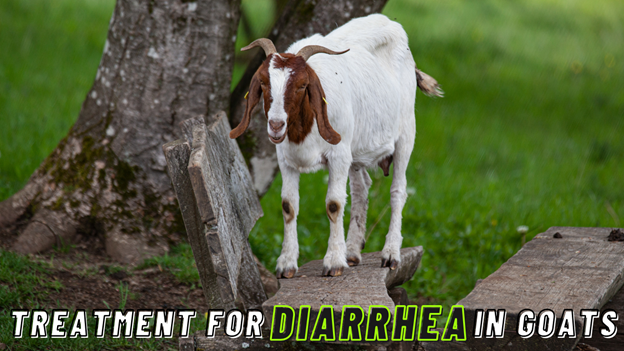The saying that goats will eat anything may be accurate, but it has serious consequences. Like us humans, their diet needs to be thoroughly thought out before feeding them.
Feeding the wrong food can lead to severe diarrhea in goats. Diarrhea can be of different kinds; it can be Coccidiosis, or it can be scoured. Coccidiosis is most common in young goats, and scours affects goats of all ages.
Coccidiosis in Goats
It is the most commonly found cause of diarrhea in goats aged from three weeks to nine months. The reason behind this is usually the stress of leaving their weaning period.
Coccidia is a fungus that lives in the intestines of all adult goats and is passed in their stool. The young kids pick up the infection through contaminated water or directly from the manure.
This can lead to weight loss and feed intake, diarrhea, blood, or mucous in the feces, dehydration, or even death.
Treatment and Prevention of Diarrhea in Goats
The best prevention in cases of Coccidiosis is the isolation of the goat in addition to constant sanitization. This way, the spread of the disease between the herd is minimized.
There are two ways to treat an infected goat or goats.
- Drench them orally in Amprolium or Corid 9.6%. This needs to be done for five days consecutively. As it is not an over the counter medicine, you need to get a prescription from the vet. Amprolium is considered as an effective way to treat or fight this disease.
- Drugs such as Sulfa drugs are a good alternative to Amprolium; however, they do not fully cure the infection, but they prevent secondary diseases from occurring.
Sulfa drugs or sulfadimethoxine-sulfamethazine drugs like Albon and Sulmet should be given in the beginning stages of the infection. These drugs also need to be prescribed by a vet.
Scours in Goats
Scours is another name for diarrhea in goats. The stool of the goat can vary in consistency and color. Scours, just like Coccidiosis, can have extreme effects if not treated properly. The most significant danger is dehydration, so the treatment for scours is mostly related to dehydration.
Treatment for Diarrhea in Goats
Electrolytes are the key to treatment for diarrhea in goats, especially when it comes to treating dehydration; they contain concentrated nutrition that restores the salts being lost in the body due to excess water loss. They mostly have acidic or basic salts such as potassium, sodium, magnesium, or chloride. These salts help maintain fluid balance inside their bodies
The electrolyte contents of the sachet should be combined with warm water to bed to the goat. The electrolytes should be given in between their milk feed and not as a replacement.
The technique of administering electrolytes is very important as we cannot interfere with their primary nutrition source, which is their feed. The electrolytes do not make up for the milk nutrition. Should be given at least three times in a day for two days till hydration is better, and results can be seen.
What to Do If Goat Diarrhea Gets Worse?
If things do not get better with electrolytes, then a visit to the vet is necessary where intravenous treatment for the condition will be provided.

